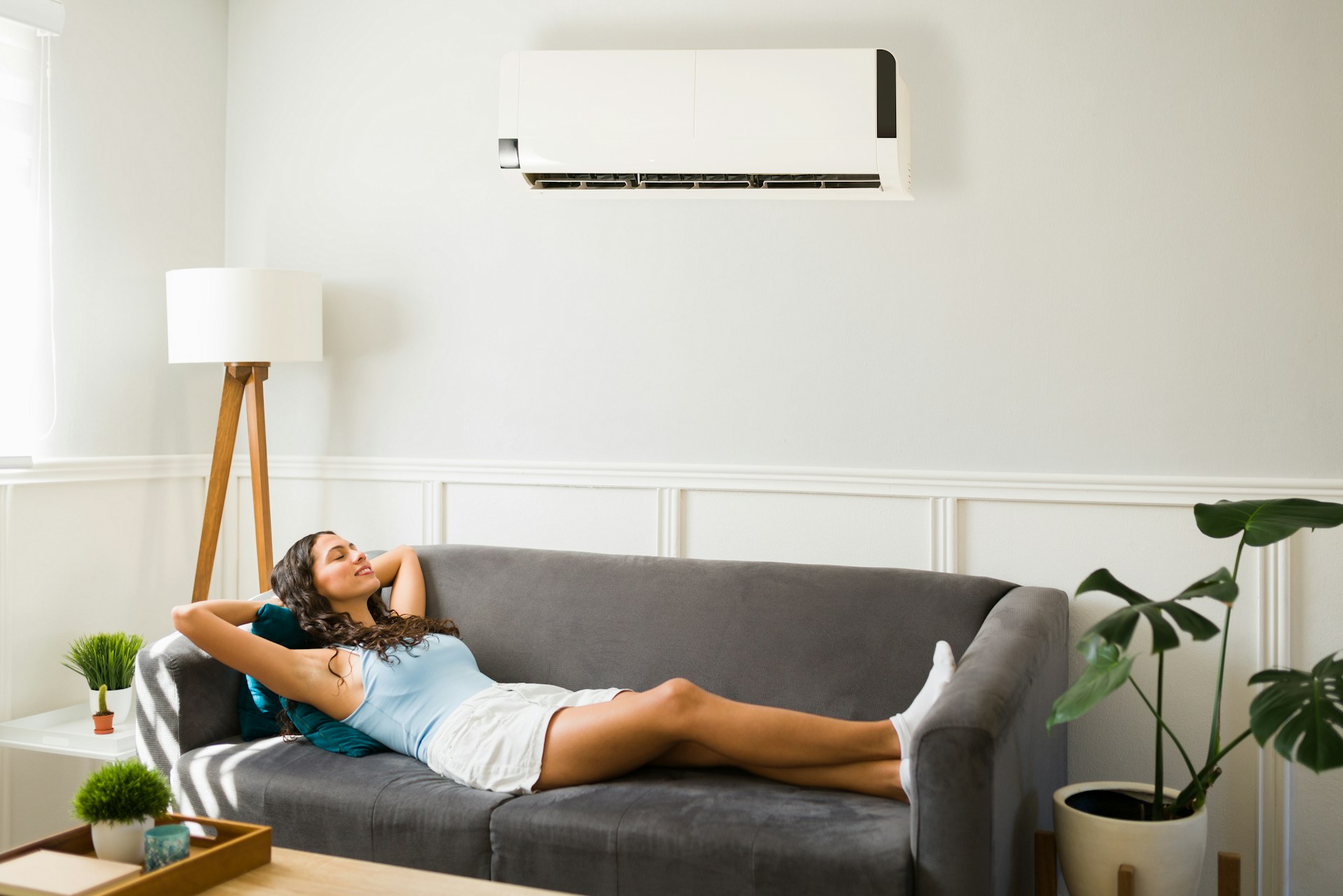Summers in St. John’s, NL can be pretty warm, and staying cool at home becomes a top priority. Selecting the right air conditioning unit is important for keeping comfortable indoors. With several options available, it’s easy to feel overwhelmed when trying to decide which type best suits your home and lifestyle. Understanding the differences can help you make an informed decision, ensuring your home stays refreshing when the heat kicks in.
Choosing the perfect air conditioner involves weighing factors like the size of your living space, energy efficiency, and specific comfort needs. Each type of unit comes with its own advantages and disadvantages, making it essential to explore these aspects before settling on one. Whether you’re looking for whole-house cooling or a more targeted approach, there’s a solution that fits. Let’s take a closer look at the types of air conditioning units available and what each one offers.
Types of Home Air Conditioning Units
Central Air Conditioning
Central air conditioning is a popular choice for those who want to cool their entire home efficiently. This system uses a network of ducts to distribute cool air throughout various rooms, providing consistent temperature control. It’s a great solution for homes with existing ductwork, as it seamlessly integrates into these structures.
Benefits:
– Even cooling across the home.
– Often quieter than window or portable units.
– Increases home value.
Drawbacks:
– Higher installation and maintenance costs.
– Not practical without ductwork.
Central systems are ideal for larger homes where maintaining a uniform temperature is important. If you’re planning to install or upgrade existing ductwork, central air can be a comfortable and convenient option.
Window Air Conditioning Units
Window air conditioning units are a compact solution that many find convenient for cooling individual rooms. These units fit snugly in a window opening and can be easily removed and stored when not in use. They’re particularly useful for homeowners who need a cost-effective cooling method without a more complex setup.
Pros:
– Affordable initial cost.
– Easy to install and remove.
– Great for cooling single rooms or small spaces.
Cons:
– Can block window views.
– Potentially noisy.
For those living in apartments or smaller homes, window units offer a straightforward and accessible way to beat the heat. They’re also a good option for people renting homes since they don’t require permanent installation.
Portable Air Conditioners
Portable air conditioners offer flexibility and mobility, making them a versatile choice. These units can be moved from room to room, providing cooling where it’s needed without the commitment of installation.
Advantages:
– Easy to move around.
– No permanent installation necessary.
– Suitable for renters or spaces without window access.
Disadvantages:
– Less efficient than other types.
– Requires exhaust venting through a window or hole.
If flexibility is what you’re after, a portable unit might just fit the bill. They’re especially handy if you find yourself needing to cool different rooms throughout the day or if you’re looking for a temporary solution during particularly hot spells.
Ductless Mini-Split Systems
Ductless mini-split systems are a flexible and efficient solution for those who need cooling in specific areas of their home. Unlike central air conditioning, mini-splits don’t rely on ductwork. Instead, they consist of an indoor unit and an outdoor compressor. This makes them perfect for homes that lack existing ducts or have unique spaces that are hard to reach with traditional systems.
Pros:
– Energy-efficient due to reduced energy loss.
– Allows for zoned cooling, so different rooms can have different temperatures.
– Easier to install compared to central air systems.
Cons:
– Higher upfront cost than window units.
– Indoor units can be visible on walls, which may not suit every aesthetic.
Ductless systems are particularly useful in homes with updated areas like a new extension or renovated attic that needs separate temperature control. If energy saving and specific room comfort are priorities, a ductless mini-split may be a wise choice.
Hybrid Air Conditioners
Hybrid air conditioners, also known as dual-fuel systems, offer a combination of traditional and renewable energy sources to maximize efficiency. These systems switch between electricity and fuels like natural gas to optimize energy use based on the temperature outside.
Benefits:
– Efficient performance that adapts to different seasons.
– Lower overall energy costs as it can switch between energy sources.
Drawbacks:
– More complex system requiring skilled installation.
– Initial costs can be higher due to the sophisticated technology.
Ideal for those who are environmentally conscious and want to reduce their carbon footprint, hybrid systems strike a balance between traditional cooling and energy efficiency. They are best suited for homes in climates where both heating and cooling are necessary.
How to Choose the Right Air Conditioner
Selecting the right air conditioner boils down to several factors that should align with your home and lifestyle. Here’s what you should consider:
1. Size of Your Space: Larger spaces need more powerful systems, like central air or ductless mini-splits for zoning. Smaller spaces might fare well with window or portable units.
2. Energy Efficiency: Consider units with high SEER ratings (Seasonal Energy Efficiency Ratio) for better efficiency and potential savings on your utilities.
3. Installation and Maintenance: Some units are easier to install and maintain than others. Think about the long-term investment and upkeep requirements.
4. Professional Assessment: It’s wise to get a professional assessment to understand the specific cooling needs of your home. They can guide you in deciding the best type of AC unit suited for your specific needs.
By contemplating these factors, you can ensure that the air conditioner you choose fulfills your cooling requirements effectively and efficiently.
Why Opt for Professional Air Conditioning Services?
Seeking professional help for air conditioning installation and maintenance offers numerous benefits. Professionals bring years of expertise to ensure everything functions smoothly and safely.
– Accurate Installation: Proper installation is critical to the performance and lifespan of your air conditioning unit. Qualified technicians know how to install systems efficiently to optimize performance.
– Troubleshooting Expertise: A professional can swiftly identify issues and carry out necessary repairs, thus preventing bigger problems down the road.
– Time and Cost Efficiency: Though hiring a technician might seem costly upfront, it often saves you time and further expense by avoiding errors and ensuring the job is done right the first time.
Ensuring that your air conditioner operates at peak efficiency not only prolongs its life but also keeps your home consistently comfortable during those warm summer months.
Stay Cool in St. John’s, NL with the Right Air Conditioner
Navigating the world of air conditioners can be straightforward once you know the basics and consider your specific needs. Each air conditioning unit has its own strengths and weaknesses, and the right one depends largely on the features most important to you, from efficiency to ease of installation.
By taking the time to evaluate and perhaps get professional advice, you can make a well-informed choice. Choosing the right system for your home can mean enjoying cool, refreshing comfort through the warmest of seasons. With a proper setup, you’ll be ready to enjoy the summer months in St. John’s, NL without breaking a sweat.
Choosing the perfect air conditioning unit ensures your home stays cool and comfortable during those hot summer months in St. John’s, NL. For expert assistance with your cooling needs, ShockFree Electrical offers air conditioning services that align with your requirements and budget. Trust our professional team to help you find the right solution and enjoy a soothing indoor climate all season long.






